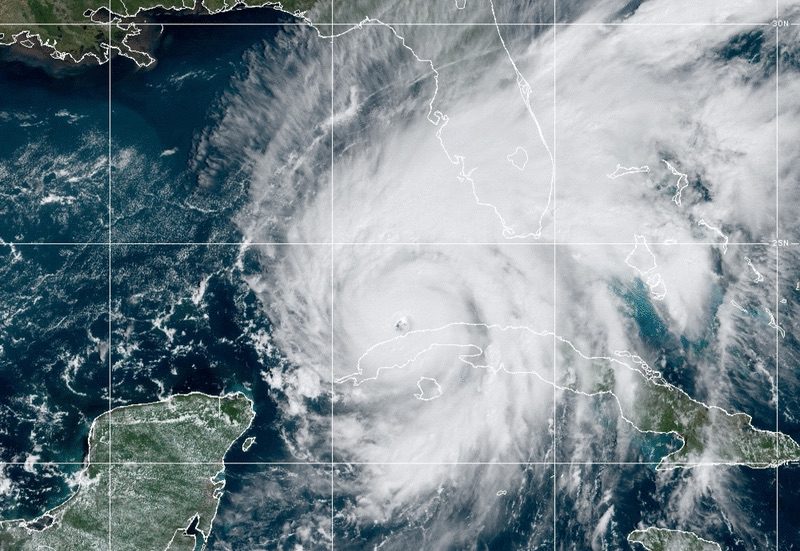Hurricane researchers at Colorado State University have increased their Atlantic hurricane season forecast, predicting an above-average season in 2023 due to record warm sea surface temperatures in most of the tropical and subtropical Atlantic.
However, researchers note there is more uncertainty than normal due to conflicting signals between much warmer than normal Atlantic waters and an expected robust El Niño.
El Niño causes increased wind shear in the Caribbean and tropical Atlantic, which can damage forming storms, but the abnormally warm temperatures in the Atlantic may offset some of this effect.
The CSU team’s updated hurricane forecast for the 2023 season now predicts 18 named storms, nine hurricanes, and four major hurricanes, which is an increase from their previous prediction of 15 named storms, seven hurricanes, and three major hurricanes.
This compares to NOAA’s prediction, issued in May, forecasting near-normal activity with 12- 17 named storms, 5-9 hurricanes, and 1-4 potentially major hurricanes with winds of 111 mph or higher. NOAA also noted high uncertainty with the forecast.
The CSU forecast includes an unnamed subtropical storm in January, as well as Tropical Storms Arlene, Bret and Cindy in June.
Long-term seasonal averages are 14 named storms, 7 hurricanes and 3 major hurricanes.
The CSU researchers estimate the probability of a major hurricane making landfall in the United States to be above the long-term average.
CSU’s hurricane forecast is based on statistical models that analyze 25-40 years of historical hurricane seasons and evaluate various conditions such as Atlantic sea surface temperatures, sea level pressures, vertical wind shear levels, El Niño, and other factors.
This is the 40th year that the CSU hurricane research team has issued an Atlantic basin seasonal hurricane forecast, intended to provide a best estimate of activity in the Atlantic during the upcoming season and not an exact measure. As always, the researchers caution coastal residents to take proper precautions.
The CSU team will issue a forecast update on Aug. 3.

 Join The Club
Join The Club











